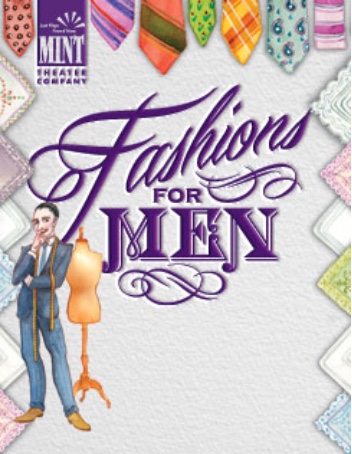Fashions for Men Is a Well-Dressed 1917 Delight

Peter Juhasz is having a really bad day in his exquisite men’s haberdashery in downtown Budapest, Hungary, where he sells nothing but the best to the men and women – upper crust, of course – who shop there in 1917. His wife Adele is running off with Oscar, one of his salesmen, and his store is about to go bankrupt and put into receivership because he rarely bothers to collect bills owed him by customers.
All seems lost but suddenly the Count, a wealthy Budapest nobleman, arrives. He is there officially to look for new clothes, but he is really there to look longingly, and lustily, at Paula, Peter’s luscious sales assistant. The Count hears of Peter’s woes. Peter had worked for him for fifteen years prior to opening up his fashion emporium. The Count gives him back his old job as the general manager of his cheese factory in the country. Paula, attracted to the Count’s money, attaches herself to Peter and they go off to the Count’s countryside manse. You see, Paula likes the Count, but she also likes Peter, sort of. Peter likes her. The Count can’t stand Peter. Peter’s wife likes Oscar, who likes her back. Peter’s wife no longer likes Peter. At the country home, we see that now Paula seems to like everybody and yearns desperately to be a noblewoman for her man, or men.
Oh, what to do?
This is the steamy dilemma for all in Ferenc Molnar’s 1917 play, Fashions for Men, a delightful Hungarian romp nicely directed by Davis McCallum. Some of the dialogue in the script was re-written to make the play appear more contemporary and it does. The jokes are plentiful and funny. There is no stodginess here and not a bit of dust on the pages of the play. It is alert, witty and very urbane. The characters are rich. It is surprisingly good, in fact.
The Mint Theater, at 311 W. 43rd St., where the play opened yesterday, specializes in reviving very old plays and this is the latest. You sit down and cross your arms together, hoping this old chestnut works.
It does, and rather well.
The play has its slow moments and there is a little bit of romantic confusion in the middle of it. The play is a little too long. Despite all of that, Fashions for Men is a gem, a lost treasure of the theater.
You learn much about men’s fashions, and women’s too (I still can’t pronounce the names of the expensive socks and ties in the play). You learn a great deal about the last days of the nobles in Hungary and other European cities, a class that is slowly being buried by history. You find out how the well to do ladies who lunch in Budapest carry on outside the haberdashery and how high their eyebrows can be raised by the shenanigans behind the counters at the store (pretty high).
The acting in the show is quite good. Director McCallum get solid performances from Joe Delafield as Peter, John Tufts as Oscar, Rachel Napoleon as Paula, Jeremy Lawrence as Philip, another sales clerk, and Annie Purcell as Adele. Kurt Rhoads is marvelous as the lecherous Count, who frets and fumes through most of the play as he pursues Paula.
Fashions for Men has some minor history problems. It is 1917 in Hungary, in the middle of World War I. In May of 1917 the war was going so badly for Hungary, part of a dual monarchy with Austria that the Emperor, Karl I, fired embattled Prime Minister Istvan Tisza, who was assassinated a year later. One week after Tisza’s dismissal, angered Hungarian troops mutinied. By the end of 1917, Hungary’s crop output had dropped to half of its pre-war totals and it clung to a tenuous relationship with Germany in the war after early defeats by Russia. Hungary was ablaze with both intrigue and disappointment, and yet there is not a single word said about all of this in the play. Somebody should be a little worried about World War I. Even so, Fashions for Men is a well-dressed delight with its brass jacket buttons gleaming and ladies hats majestic.
PRODUCTION: The play is produced by The Mint Theater. The gorgeous haberdashery set is designed by Daniel Zimmerman. Costumes: Martha Hally, Lighting: Eric Southern, Sound: Jane Shaw. The play is directed by Davis McCallum. Zimmerman. The play runs through March 29.